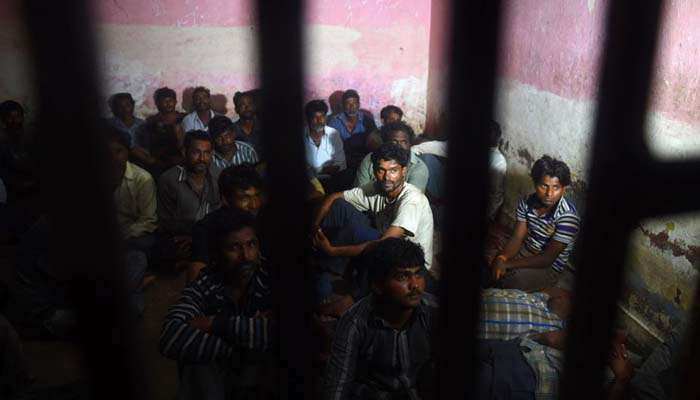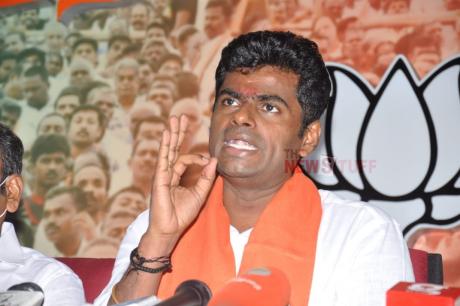A Vellore based Academy of Prisons and Correctional administration will unleash first of its kind survey on the foreign inmates locked inside the Indian prison and it had said that it will carry out the study over next six months by meeting and interviewing all the foreign prisoners lodged in the prisons across the nation under the grounds of identifying differences in language, food, access to medications and meeting their families. The Academy further stated that it will draft the study as the report which will later be submitted to the Union Home ministry.
Currently, as per the government's documents on inmates, Indian prisons have been homing more than 6000 foreign prisoners in its 1,412 jails and the population of overseas inmates had accounted for above 1.5 percent of the total population of Indian prisons. Out of the total inmates, half of those fall as undertrials and most number of foreign prisoners are from Bangladesh, Nepal and Myanmar.

Till 2016, the number of foreign inmates stood totally of 6,370, including 918 women as per the survey of National Crime records Bureau. It further stated that, of those total numbers, 2,366 inmates were convicts while 3,258 are undertrails and 43 being detained. The reports had indicated that India homes more undertrails in the population of foreign inmates. While Bangladesh, Nepal and Myanmar had amounted for maximum number of the population, there are about 700 prisoners who will fall under the category of other nationalities.
The Vellore based academy had flagged its survey on the foreign inmates, after receiving suggestions from British high commission and from embassies of United States, Canada, Australia and New Zealand where British counsel to India had stated that the discussions has been made about the possibilities of inmates in maintaining contact with their families in their countries and tackling of barriers that would be faced by a foreign inmate including language, diet and understanding prison systems.
According to the government's reports, about 60% of foreign inmates are from Bangladesh and the number makes up to 3,770 where most of the numbers have been locked up in Bengali prisons. The inmates from Bangladesh and other nations from Indian subcontinent won't get preyed over the language and food barriers as they will be less likely get affected while on the other side, the barriers will deeply impact and affect the inmates who belongs to beyond the borders of subcontinent- from Africa, Europe, Oceania and Americas.
Different prisons in different states of India with different rules and legislation are hosting the inmates from different countries where the prison in Goa had Japanese inmate while eight Chinese were locked down in Bihari prisons and over 150 Nigerians had been behind the bars of Tihar jail in Delhi. Tihar jail, one of the popular facilities in India is believed to be hosting the foreign inmates with Indian meal which would be served to local inmates. Till the month of July 2019, Tihar jail had detained more than 450 foreign prisoners from 50 nationalities like Vietnam, Venezuela, Peru and Taiwan. The representatives of foreign embassies had discussed to frame a report on the differences in food.

Language occupies the space of next biggest barrier followed by food where the foreign missions had sought to know about the availability and facilities of translators in Indian prisons to ease the burden of language that have been faced by most of the foreign inmates beyond Indian subcontinent.
Another crucial issue of the foreign inmates are availing proper medications that were prescribed by the doctors in their home countries as most of the detainees find the barrier of availing medicines from India for which the representatives had urged the government to frame the regulations for foreign inmates to order medications from their home countries through online and they had also pressed the government to allow the inmates to meet their families virtually through video calls from their respective detention centers which could reduce the disconnection that has been filled between inmates and their families in their home countries.
While commenting on the regulations that has been demanded by the foreign embassies, the prison authorities had ruled out by saying that the prison manuals and provisions are common for all inmates irrespective of their nationalities and urged such foreign inmates who desperately need these special provisions to approach court to have their appeal granted. Authorities further added that Indian prisons oddly host the facilities for foreign inmates to get in touch directly from the prison with their families as most of the prisons does not have international call facilities and added that they will be allowed to have a touch with their families only after their respective embassies will sign an endorsement.
The survey head, Emmanuel had said that the prison officials who was part of our discussions had already visited prisons in Delhi,Amristar and Patiala and had met with the inmates from Kenya and other African countries.









Comments